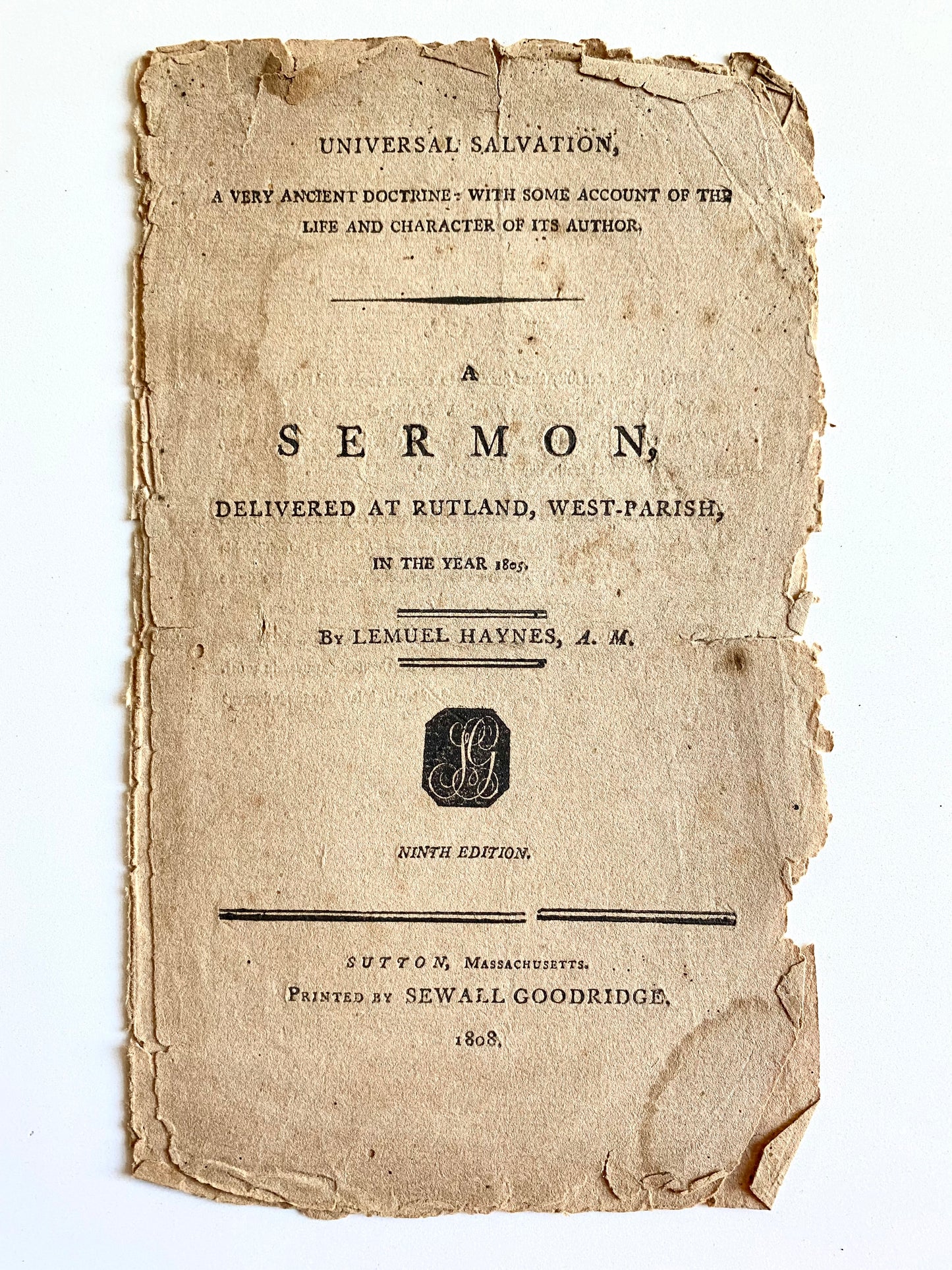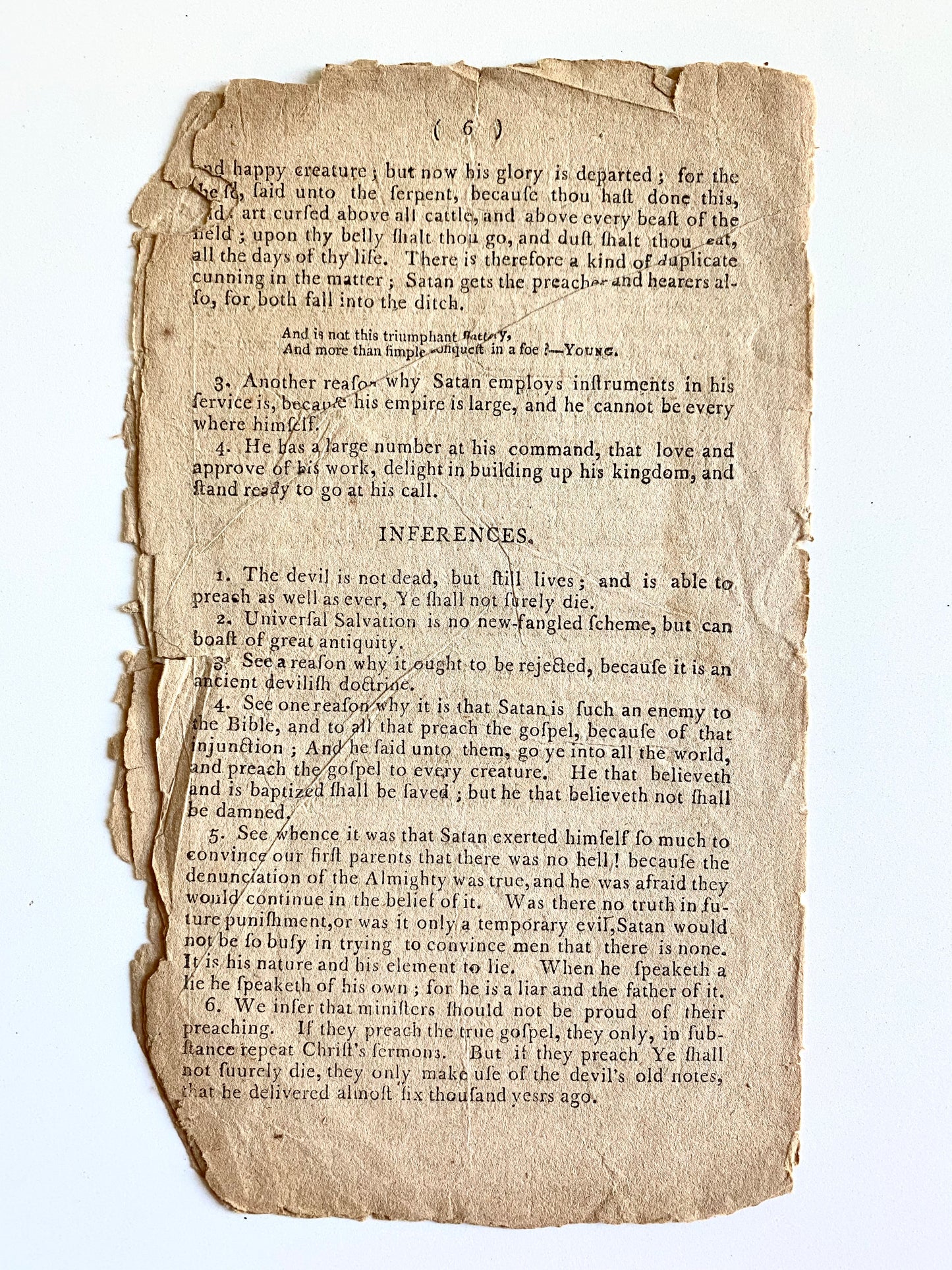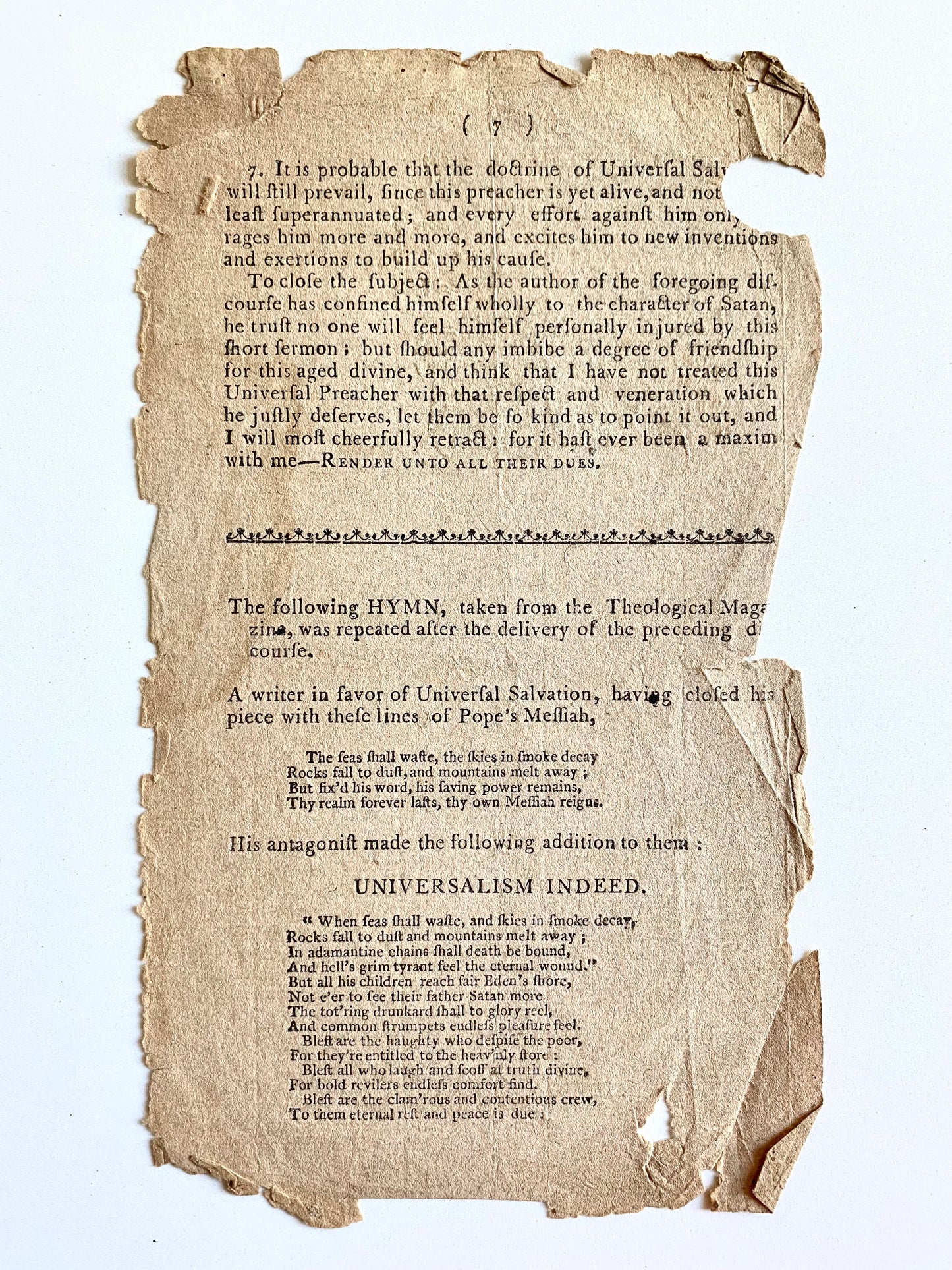Specs Fine Books
1808 LEMUEL HAYNES. Rare Sermon by the "Black Puritan" of New England on Universal Salvation
1808 LEMUEL HAYNES. Rare Sermon by the "Black Puritan" of New England on Universal Salvation
Couldn't load pickup availability
Very rare sermon, with no other examples on the market, by Lemuel Haynes [1753-1833]. Born in 1753 to a black father and white mother in New England, his options were limited. He began life as an indentured servant. As part of his "indenture" he was required to go to church, which was a strongly experimental gathering deeply influenced by Whitefield, Edwards, and others. Thus how he came to be known as "The Black Puritan." The doctrinal forces came to frame his own experience and theology as well. He experienced Jesus there and was preaching before he was 16 years of age. Then, at 21 years of age, he was released from his indenture, and enlisted as a soldier in the American Revolution and served at Fort Ticonderoga after its capture in 1776.
An early abolitionist, he vehemently opposed the colonization movement favored by many in New England, instead arguing that the Constitution should be amended to include people of all races as full citizens with all the rights, duties, and privileges afforded to any other American. Ordained in 1785, he served as Pastor in Rutland, Vermont. He was the first black person ordained in the United States.
The current work is a rather clear, and slow burning [burning none-the-less] reproof of Universal Salvation and of its main proponent, Hosea Ballou, who is satirically compared to the Serpent in the Garden, etc. Haynes was also the first black divine to have a sermon published in America. This is among his earliest.
Haynes, Lemuel. Universal Salvation. A Very Ancient Doctrine, With Some Account of the Life and Character of its Author. A Sermon Delivered at Rutland, West-Parish, in the Year 1805. Sutton, Massachusetts. Printed by Sewall Goodridge. 1808. 8pp.
Though it went through several editions quite quickly, few copies remain. It's brevity, 8pp, made it feel ephemeral. The post-colonial home fires I'm sure were started with the leaves by the children of those who originally read them.
The present copy is not pretty. Each leaf is dog-eared and stained and all sheets are disbound. Three leaves have a section missing at the foredge that impacts a few words, though does not render the sermon illegible. A later edition sold for near triple this price; worthy of preservation.
Share






